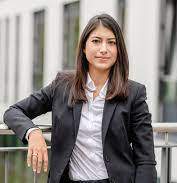International Workshop on Knowledge Graph Summarization
There is a growing interest in generating summaries from the facts contained in a Knowledge Graph. Condensing relevant information into a few statistical data, sentences, paragraphs, or triplets is an emerging problem that remains to be solved as knowledge graphs increase complexity and expand in size and domains. Knowledge Graph Summarization (KGSum) aims at producing concise but informative descriptions of the content of a knowledge graph that help users to efficiently access and distill valuable information from it. Conversational systems, question-answering services or any other method leveraging the narrative content around the entities in a knowledge graph will benefit from these techniques.
This in-person workshop welcomes a wide range of papers, including full research papers, negative results, position papers, datasets, and system demos, that explore a variety of issues and processes related to the creation of summaries from knowledge graphs, such as question-answering, graph-to-text transformations, and entity summarization, among others. Also welcome are papers on resources (methods, tools, benchmarks, libraries, and datasets).
Topics
Researchers from multiple areas such as Semantic Web, Linked Data, Natural Language Processing (NLP), Entity Linking (EL), Knowledge Representation and Reasoning (KRR), and other related fields will find opportunities to present and discuss about emerging research and applications, and to identify new opportunities that address the following topics (but not limited to):
- Use of Language Models for KG Summarization
- Exploration of advanced methods for summarizing Knowledge Graphs (KGs) using language models.
- Projects related to verbalizing facts expressed through subject-predicate-object triplets in KGs.
- Automatic Generation of Textual Summaries as a Metric for KG Quality
- Assessing the quality of Knowledge Graphs through the automatic generation of textual summaries
- Integration of language models in measuring the quality of KGs.
- Relevant KG Features to Synthesis
- Identification of key attributes within KGs that are essential for generating summaries.
- Special Metadata in KGs for Coherent Multi-Sentence Summary Generation
- Leveraging metadata and special features within KGs to generate coherent multi-sentence summaries.
- Extensions to current KG Formalisms for Improved Summary Support
- Exploration of adaptations and extensions to KG formalisms for more effective support in summary generation.
- Benefits of Incorporating Automatic Textual Summary Generation in KGs
- Highlighting the advantages of integrating automatic summary generation into Knowledge Graphs.
- Scope and Impact of KG Summaries
- Evaluating the influence and relevance of KG summaries in various contexts.
- Examining practical scenarios and applications of KG summaries across different domains.
- Generating Adaptive Summaries from KGs to Cater to Diverse User Needs
- Exploring how KG summaries can be personalized to meet the needs of various users and agents.
- Importance and Role of KGs in Expressing Complex Ideas through Summaries
- Emphasizing the crucial role of Knowledge Graphs in creating summaries that effectively convey complex ideas.
- How KGs in Conjunction with Textual Summaries Can Enhance Question-Answering (QA) Systems
- Investigating how the combination of KGs and textual summaries can be leveraged to improve Question-Answering (QA) systems.
Important Dates
Paper Submission: Oct 15 (23:59 AoE), 2023 Oct 20 (23:59 AoE), 2023
Notification to Authors: Oct 29, 2023
Camera-Ready Deadline: Nov 12, 2023
Workshop Dates: Dec 5-7, 2023
The workshop will be co-located with the International Conference on Knowledge Capture (K-CAP). More information on the K-CAP webpage.
Submission Guidelines
KGSum will be a half-day day workshop, divided in two sessions, each one followed by a discussion slot around the presented topics and a panel with a mixture of academic and industrial representatives.
The papers can be submitted via EasyChair. All papers must be original and not simultaneously submitted to another journal or conference/workshop. All submissions must be in English (CEURART format) and will be publicly available under CC-by 4.0 license.
The accepted papers will have the opportunity to submit an extended version in a proposed SWJ's special issue. More details to follow.
- Full research papers (8-12 pages)
- In-Use and Experience papers (8-12 pages)
- Short research papers (4-6 pages)
- System/demo/Position papers (4-6 pages)
The workshop follows a double-blind review process, where the identity of both authors and reviewers are concealed. Submitted papers must be anonymized.
Accepted Papers
TBC
Program
December 2023
TBC
Organization Committee

Carlos Badenes-Olmedo
Carlos Badenes-Olmedo is an Assistant Professor at the Universidad Politécnica de Madrid (Spain), and a member of the Ontological Engineering Group (OEG). His research on advanced techniques for knowledge extraction from unstructured data combines machine learning, natural language processing and KGs. Carlos has previously organized other tutorials and workshops at K- CAP and ISWC, and is cofounder of the company librairy.eu, a technology-based spin-off that facilitates the exploration of large document corpora.

Jose Luis Redondo-Garcia
Jose Luis Redondo-García works as a Senior research scientist in the Spotify Research lab, focusing on the understanding of spoken content using Large Language models and foundational models, such as Graph Neural Nets. His evolving research interests include Natural Language Processing, Knowledge Representation, and Semantic Web. He was wide industrial and academic expe- rience, and his work on automatically collecting and ranking contextual entities from news stories obtained the Best Paper Award at the international conference KCAP 2015.

Nandana Mihindukulasooriya
Nandana is a research scientist at IBM Research, Ireland. His re- search is focused on Knowledge Representation, Knowledge Graphs, Natural Language Processing, and Knowledge Base Question Answering, and Nuero- Symbolic AI. He has published more than 60 peer-reviewed papers in presti- gious journals, conferences, workshops on topics related to Knowledge Graphs and NLP. Nandana has previously organized three ISWC Challenges at ISWC 2020-2022 and other workshops at ESWC, WWW and K-CAP.

Maribel Acosta
Maribel Acosta is Professor of Data Engineering at the Technical university of Munich (TUM), Germany, where she is the Head of the Database and Information Sys- tems Group. Her research interests include KG sampling for summaries used during query processing and KG quality (completeness). More recently, she has applied Machine Learning approaches to these research topics. She has co- organiezed several workshops (e.g., CrowdSem@ISWC’13 and LDOW@WWW’19) and acted as Research Track Chair (SEMANTiCS’23, ESWC’18, SEMANTiCS’19, ESWC’21) and PhD Symposium Chair (ESWC’20 and HCOMP’20).
Programme Committee
- Gaetano Rossiello, IBM Research
- Soto Montalvo, Universidad Rey Juan Carlos
- Emilio Monti, Amazon
- Pasquale Lisena, Eurecom
- Pablo Calleja Ibañez, Universidad Politécnica de Madrid
- Hegler Tissot, Drexel University
- Patricia Martín Chozas, Universidad Politécnica de Madrid
- Boris Villazon-Terrazas, EY wavespace
For contact details please send us an email to: kgsum2023@easychair.org